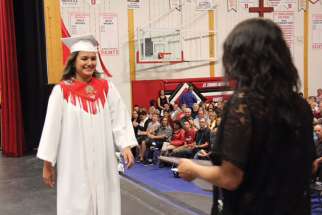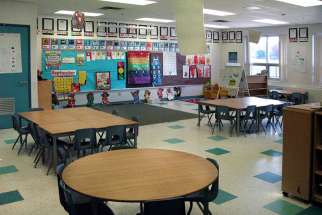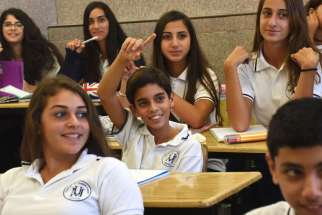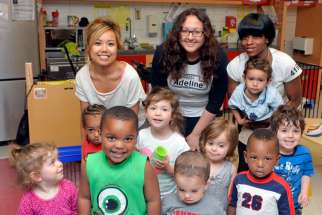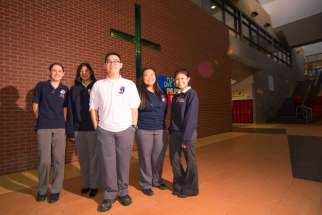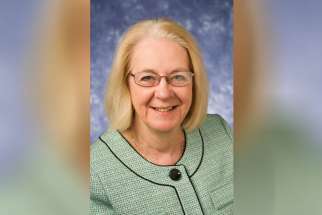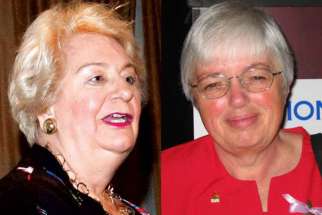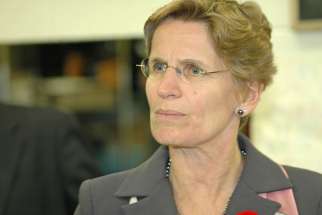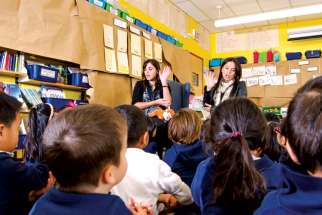Northern schools lead on reconciliation
To see the impact of engraining Indigenous cultures and languages into Ontario’s schools — a practice encouraged by the Ministry of Education — one needs to simply look north.
Fund puts Ontario schools on path to green future
Ontario’s Ministry of Education wants the province’s schools to step up when it comes to reducing greenhouse gas emissions and it’s putting up $200 million to support that effort.
Help is on the way for Ontario's classrooms
Ontario’s special needs students have received a helping hand from the Ministry of Education to the delight of the Catholic teachers’ union.
Christian educators say Israeli funding cuts threaten schools' existence
HAIFA, Israel – When Israel's Ministry of Education ranked its top 277 schools, eight of the nation's 47 Christian schools were on the list.
Ontario daycares receives a $120 million boost
Good news for parents with young children in Ontario — the Ministry of Education plans to spend $120 million to increase day care spaces in the province.
Sex-ed opponents call for student strike
TORONTO - A parent group is calling for children to be pulled out of school during Education Week in Ontario to protest the province’s new sexual-education curriculum.
Students at Ontario’s Catholic high schools are graduating at a significantly higher rate than those at public schools, according to data released by the Ministry of Education.
OECTA president to focus on relationship building
Over the next two years Ann Hawkins hopes to use her position as the new Ontario English Catholic Teachers Association’s (OECTA) president to build relationships and protect the Catholic classroom.
Schools to teach sex ed through Catholic lens
OTTAWA - Ontario Catholic authorities believe Catholic teaching is protected in the province’s new sex education curriculum, though pro-family groups don’t share in that optimism.
Group seeks more consultation on Ontario sex ed curriculum
TORONTO- Concerns that there was insufficient parental consultation during the reform of Ontario's sexual education curriculum were formally voiced by a newly formed Toronto citizens' group Dec. 12.
And some in the group went further, predicting that much of what was shelved four years ago when the Liberal government tried to bring changes to the curriculum will be brought back, and they expressed concerns that an alleged child pornographer's hands are all over the development of that curriculum.
“What we are trying to do now is to make sure that the consultation will let all parents express their views,” said Peter Chen, co-ordinator of Citizens for Good Education, which hosted a press conference in Toronto to voice its concerns. “We would like transparency and democracy in this consultation.”
Citizens for Good Education is an umbrella group that represents more than 200 faith and ethnic groups, including the Catholic Civil Rights League, REAL Women of Canada and the Toronto Chinese Catholic Task-force.
In the days following Nov. 28 when the consultation process conducted by the Minister of Education closed, more and more of the groups came forward expressing concerns that surveying 4,000 citizens (one parent from each elementary school in the province) over two weeks in a province with four fully funded school systems and a population of 13.5 million was insufficient.
Chen said the group is seeking to defer the proposed September 2015 implementation of the new curriculum to allow for further consultation.
“We want to make sure the timing and the contents are appropriate for our children age-wise,” said Chen.
Gwen Landolt, founder of REAL Women of Canada, also criticized November's consultation as an online survey which “is not parent input,” and said it contained “loaded questions all leading in one direction.”
The government believes its recent consultation was sufficient and intends to involve parents again before the finalizing the document.
“In recognizing that parents have a strong interest in how this information is provided to their children, the province committed to consult with parents before the document is finalized," said Ministry of Education spokesperson Derek Luk.
Luk said this new information will be used in conjunction with that gathered between 2007 and 2010, extensive consultations with those directly involved at all levels of education and expert advice.
Beyond the lack of consultation, Mary-Ellen Douglas, national co-ordinator for Campaign Life, is concerned with former deputy education minister Benjamin Levin's role in developing the reformed curriculum four years ago, which was pulled by the Liberal government at the last minute. She feels that much of the new curriculum, considering the tight timeline of the current reform process, will mirror that program.
Levin is facing charges of making and distributing child pornography, counselling to commit an indictable offence and an arrangement to commit a sexual offence against a child under the age of 16. Since the original charges were laid, Levin had five additional child pornography related charges laid against him.
“He is an alleged child pornographer and he is up on these charges and this is the man who wrote the program,” she said. “If convicted the man should be in jail and stay there for the rest of his life. This is a man who wants to exploit our children through the school system.”
Jack Fonseca, a Campaign Life spokesperson, also expressed concern over Levin's potential contributions.
“In 2010, parents first learned of this Grades 1 to 7 curriculum sex ed lessons that were too graphic at too young an age and made them feel uncomfortable,” he said. “Now that we know it was written under the direction of an alleged child pornographer... parents are even less comfortable. Levin’s hand in an explicit program that seems to sexualize kids has only heightened concerns, including my own, as the father of a kindergartner.”
Luk said Levin was simply one cog in the development of the previous curriculum.
“No single individual writes curriculum policy,” he said. “Review or development of all curricula is based on research, evidence and extensive consultation.”
Following the press conference, Chen said Citizens for Good Education would be bringing its message to Queen's Park.
“We will be launching petitions online, or on paper, formed by our member organizations and plan to collect signatures and present them to Queen's Park,” said Chen.
Speaking of sex
Ontario’s Ministry of Education has launched an online survey regarding the sex-ed component of a new health and physical education curriculum for elementary schools. According to an information package, the ministry is seeking input from 4,000 selected parents — one from every elementary school in the province — as it finalizes a new curriculum for implementation next September.
Overflow in full-day kindergarten
To meet Ministry of Education deadlines for implementation of full-day kindergarten, the Toronto Catholic school board has resorted to creating makeshift classrooms in gymnasiums and libraries for many of its youngest students.
Ontario Catholic trustees not giving up on regaining management rights
TORONTO - Not willing to admit defeat just yet, the Ontario Catholic School Trustees' Association (OCSTA) will continue to push for changes to the Putting Students First Act.
"It is our intention to put forward some ideas and possibly have some input," said OCSTA president Marino Gazzola.
Under the legislation passed Sept. 11, Ontario's Catholic school boards are bound by the agreement the province reached with the Ontario English Catholic Teachers' Association (OECTA) on July 4. That deal means a more restrictive set of rules in hiring rights and management oversight of diagnostic testing, which public boards don't face due to a deal Dalton McGuinty's Liberals had to strike with the Conservatives in order for the legislation to pass.
According to the Ministry of Education, Ontario boards will soon have more information regarding the Policy/Program Memorandum development process and further information about the hiring practice regulation.
"The ministry will begin the consultation process soon for the development of a Policy/Program Memorandum on effective use of diagnostic assessments," said Gary Wheeler, a ministry spokesperson. "In the coming days, the ministry will provide additional information to school boards on the fair and transparent hiring regulation announced in August.
"The regulation is based on the memorandum of understanding signed with OECTA (Ontario English Catholic Teachers' Association)."
"We'll have to see what those specifically say before we can say where we are going with this," said Gazzola.
OCSTA is still very concerned about the two provisions within that deal that will reallocate managerial rights. The association will "put forward some amendments that we had that would help protect the voice of parents and the quality of education in Ontario," said Gazzola. "We thought it would be very important to the legislation (but) obviously those amendments didn't pass so we're very disappointed."
While OCSTA knows what it wants, how it plans to achieve it is still undetermined.
"Right now we are almost in a holding pattern," said Gazzola. "We'll have to sit down and then see what our next steps are going to be."
What does have to be taken care of is the local collective bargaining process for each board, at least what is left of it.
"We remain opposed to the legislation, a legislation that puts Catholic and public boards on inequitable footings and weakens the collective bargaining process for all employees," said Mario Pascucci, chair of the Dufferin-Peel Catholic District School Board. "We will, however, abide by the law and will move forward, seeking to bargain on the remaining local issues."
Although Gazzola encourages the conversation continue between trustees and teachers, he did caution against moving too swiftly.
"Boards are going to have to sit down and look at what they can still work with and talk about," said Gazzola. "I don't think anyone should take any rash actions or quick decisions. They're going to have to sit down and analyse everything and see where they have to go."

